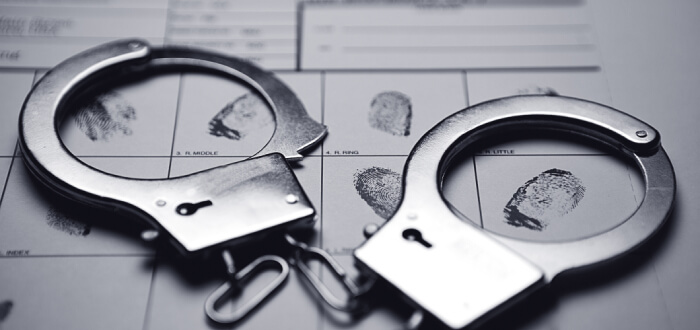Although misdemeanors are lesser offenses than felonies in New York, a misdemeanor conviction is still punishable by jail time, probation and/or fines. Moreover, being convicted of a misdemeanor means having a permanent criminal record, which could interfere with employment and housing opportunities as well as government licensing such as TLC, teaching, contracting and more. The best decision you can make to protect your rights in this situation is to consult an experienced criminal defense attorney.
Heiferman and Associates, PLLC routinely defends clients against misdemeanor charges in New York City, Queens, Brooklyn and Nassau, and Suffolk Counties. A common mistake for defendants is to think that a misdemeanor charge is no big deal; however, a misdemeanor arrest is a serious matter that must be addressed head-on. When you become our client, we will explain the charges you are facing in understandable terms and choose the best line of defense. Our objective is to have your misdemeanor charge dismissed or arrange for alternative sentencing. Above all, we will always put your best interests first and work to keep your record clean.
What is a misdemeanor in New York?
Under New York State Penal Law, a misdemeanor is a nonviolent crime punishable by more than 15 days but less than one year in county jail. Misdemeanors are divided into three categories — Class A misdemeanors, Class B misdemeanors, and unclassified misdemeanors:
- Class A misdemeanors — The most serious misdemeanor offenses, Class A misdemeanors are punishable by up to one year in the county (or city) jail, probation, fines, community service, and mandatory state surcharges. Depending on the circumstances, the sentence may be split into a shorter period of incarceration and a longer probationary period following the defendant’s release from jail.
- Class B misdemeanors — Less serious than a Class A misdemeanor, a conviction for a Class B misdemeanor can result in up to 90 days in jail, probation, fines, community service, and mandatory state surcharges.
- Unclassified misdemeanors — Any offense not defined under NY penal law punishable by 15 days to 1 year in jail, typically involving violations of Vehicle and Traffic law (e.g. aggravated unlicensed driving and reckless driving) and various other statutes.
Common Class A Misdemeanors include:
- Petit larceny — The lowest level and most common theft offense under NY Penal Law, petit larceny involves the unlawful taking of property or services valued at no more than $1,000, often associated with shoplifting
- Assault — The most common assault offense under NY Penal Law, assault in the 3rd Degree involves intentional, reckless or negligent physical injury to another person.
- Criminal Possession of a Weapon in the Fourth Degree — The least severe weapons crime in New York, this offense involves the possession of a firearm, knife, or other dangerous weapons, including certain types of ammunition, without a license.
- Criminal Possession of a Controlled Substance in the Seventh Degree
- Third-degree identity theft — Knowingly and with intent to defraud another person and assuming his or her identity by (1) presenting themselves as that other person, (2) acting as that person, (3) using identifying information of that person and (4) obtaining goods, money or services, using another’s credit, or causing financial harm to that person.
Second-degree criminal impersonation — This offense involves (1) impersonating another person to obtain a benefit or defraud that person, (2) pretending to be a representative of an organization, (3) pretending to be a public servant and acting in that capacity, or (4) pretending to be another person online or through electronic communications to obtain a benefit.
Common Class B Misdemeanors include:
- Prostitution — Engaging or agreeing to offer to engage in sexual contact with another person in exchange for a fee.
- Unlawful assembly — Assembling with 4 or more persons for the purpose of engaging in or preparing to engage in violent conduct likely to cause public harm.
- Issuing a bad check — This offense occurs when an individual writes a check or passes a check from another, knowing there were insufficient funds to cover the check and believing that the check would be refused.
Common Unclassified Misdemeanors include:
- Driving While Intoxicated (DWI)
- Aggravated Unlicensed Operation of a Motor Vehicle
- Driving an Unregistered Motor Vehicle
- Reckless Driving
Consequences of a Misdemeanor Conviction
A misdemeanor conviction can result in a jail sentence less than or up to the maximum and/or a fine. A period of probation that does not include jail is also possible, which typically comes with conditions such as community service, curfews, restitution, no contact with the victim or counseling for substance abuse or anger issues. In addition, a misdemeanor conviction may result in a permanent criminal record which can cause lasting harm to your educational and job prospects and make renting an apartment more difficult.
Contact Our Queens Misdemeanor Defense Attorney
If you are facing a misdemeanor charge in the greater New York are (New York City, Long Island or New Jersey), Heiferman and Associates, PLLC can help. Our familiarity with the applicable provisions of NY Penal Law and the court system will put you in good stead and give you a better chance to keep your record free of a conviction. While prosecutors have a lot of discretion in pursuing misdemeanor cases, it is critically important to have our winning criminal defense attorneys in your corner.
We will work hard to win an acquittal, or in the alternative, seek to have the charges and penalties reduced to the lowest possible. Knowing that you may never have dealt directly with the criminal justice system, which can be complicated and confusing, will guide you through the entire process, always keeping you fully informed about the status of your case. Above all, we will work tirelessly to preserve your freedom and your reputation. Please contact our office today for a free evaluation of your case.

